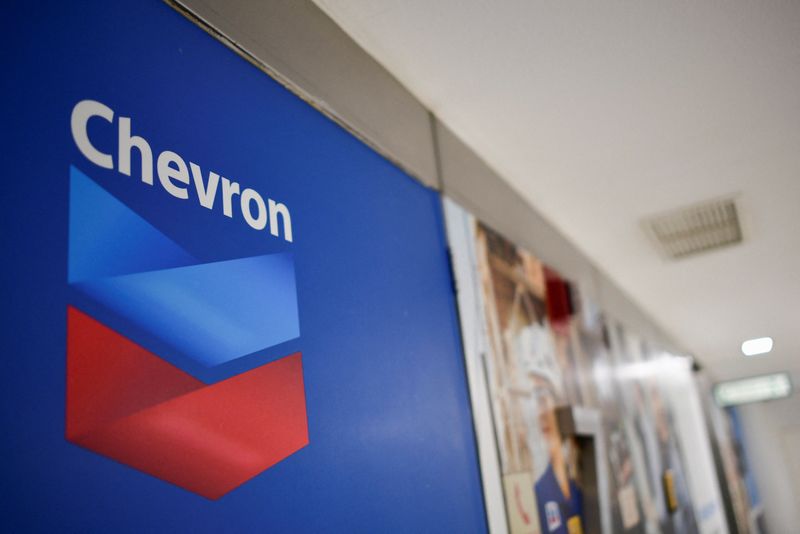By Renju Jose, Lewis Jackson and Emily Chow
SYDNEY/SINGAPORE (Reuters) - Workers at Chevron (NYSE:CVX)'s Gorgon and Wheatstone liquefied natural gas (LNG) projects in Australia plan a total strike for two weeks from Sept. 14, a union alliance said on Tuesday, in a significant escalation on disputes over pay and conditions.
Australia is the world's biggest LNG exporter and the ongoing dispute has stoked volatility in natural gas markets, as traders worry about the risk of long-term disruption.
The strike decision comes amid mediation talks hosted by the Fair Work Commission, Australia's industrial arbitrator, which began on Monday and are scheduled to run every day this week, ahead of brief stoppages called by the union from Thursday.
"The Offshore Alliance is escalating protected industrial action to demonstrate that our bargaining negotiations are far from 'intractable'," the union alliance said in a Facebook (NASDAQ:META) post.
Freeman Shaheen, head of global gas at Chevron told reporters at the Gastech conference in Singapore that the discussions are continuing.
"There are mediated negotiations going on, which I think is positive," he said.
Shaheen said everybody has the right to industrial action, but he does not think it's needed. "So we’re hopeful and they’ll continue the negotiated mediation and that we will get to the right spot."
Prolonged industrial action could disrupt LNG exports and likely increase competition for the super-chilled fuel, forcing Asian buyers to outbid European buyers to attract LNG cargo.
The latest move by the union could be a sign that the mediation talks were not "progressing well", ING said.
"This is likely to provide some support to gas prices today and comes at a time when there is ongoing maintenance work at the Norwegian gas field, Troll, which has seen flows from Norway falling," ING said in a research note.
Dutch and British gas prices were mixed on Monday as high storage levels suppressed short-term prices, although analysts said any disruptions in Australian LNG exports could complicate the supply chain. [NG/EU]
Wheatstone and Gorgon have the capacity to provide up to half Western Australia's total gas consumption and on Tuesday the union alliance said some staff had offered to work through strikes to help repair the domestic gas plant at Wheatstone.
The Wheatstone processing facility consists of two LNG trains, or liquefaction units, and a domestic gas plant. The union alliance has only offered to work at the latter facility during the strikes.
"We have in place business continuity plans... We do plan to be a reliable supplier. We talk to our customers all the time," Chevron's Shaheen said.
STRIKES 'INEVITABLE'
The union has already called for industrial action at the U.S. energy major's Gorgon and Wheatstone projects, which account for more than 5% of global LNG capacity, for seven days from Thursday Sept. 7, if parties cannot find a resolution.
Employees plan work stoppages of up to 11 hours in several blocks and will stop performing certain tasks until Sept. 14.
But in its latest update, the offshore alliance said the work bans could be extended until at least the end of the month. It said Chevron would be forced to finally agree to their terms "but not before they lose a few $Billion."
Energy analyst Saul Kavonic said the "lower-level strikes" from Thursday looked almost inevitable now and the latest move by unions will keep their options open to escalate the strikes.

"It will create inefficiencies, and the risk of supply impacts grows with time but the mediation process should resolve the issues before the strikes escalate to the point of a material supply disruption," he said.
Gorgon, Australia's second-largest LNG plant, has an export capacity of 15.6 million tonnes a year and Wheatstone 8.9 million.